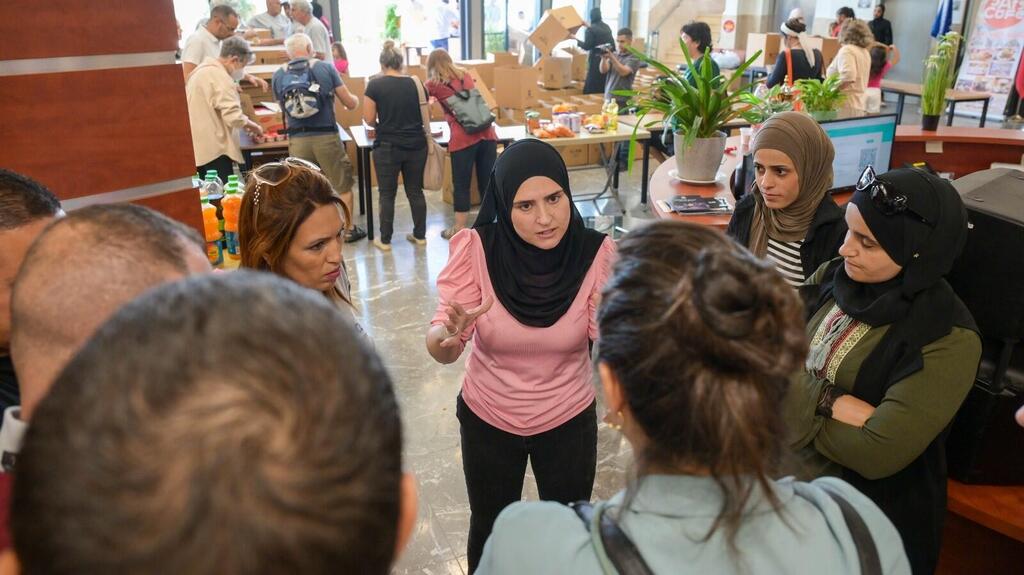Most Arab citizens of Israel feel a strong connection to the state but fear for their safety following Hamas' October 7 attack, according to a survey by the Israel Democracy Institute.
More stories:
According to the study, 56% of participants agreed with Mansour Abbas, leader of the Islamist Ra'am Party, who said that the Hamas attack does not represent Arab society, Palestinians or the Islamic community.
Nearly two-thirds of respondents reported feeling connected to the State of Israel and its issues, and most had voted for non-Arab political parties in the recent elections.
The study revealed that 71% of participants felt uncomfortable expressing opinions on social media, and 54% were uneasy going to work in Jewish or mixed cities. Over half reported feeling comfortable speaking Arabic among strangers or Jewish Israelis, while 76.5% expressed discomfort in reaching out to relatives or acquaintances in the West Bank and Gaza.
Some 74% of participants reported good relations with Jews. Of these, 78% noted no change in relations after October 7, while 15% experienced a minor or more substantial decline. Interestingly, 5.5% reported an improvement in relations.
3 View gallery


Jews and Arabs in Rahat organize to provide for displaced communities and victims after the Hamas massacre
The study revealed that since the war, 84% of Arab citizens have experienced a growing sense of concern regarding their physical safety and economic security, both for themselves and their families. Notably, women exhibited even higher levels of concern, with 92% expressing increased worry about their physical safety and 95% about their financial well-being. In comparison, men reported 75% concern regarding physical safety and 77% concern about their finances.
Dr. Adam Asad, the author of the survey, pointed out that the findings accurately capture the prevailing sentiment within the Arab sector amid the war. Additionally, he highlighted that the variations observed among different localities are more closely tied to geographical factors than political ones.
"The ties between the Jewish and Arab communities will remain after the fighting and it is our duty to nourish them," he said. "The differences between men and women may stem from the level of employment of Arab women in the Israeli job market that reflects on social behavior, culture and politics. The war revealed a lack of employment opportunities and impacted many businesses, which poses more difficulties for Arab women hoping to secure their financial future."
The survey included 538 people in Arabic-language telephone calls.





